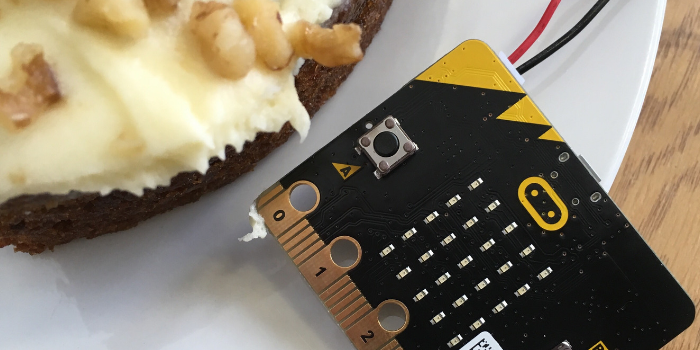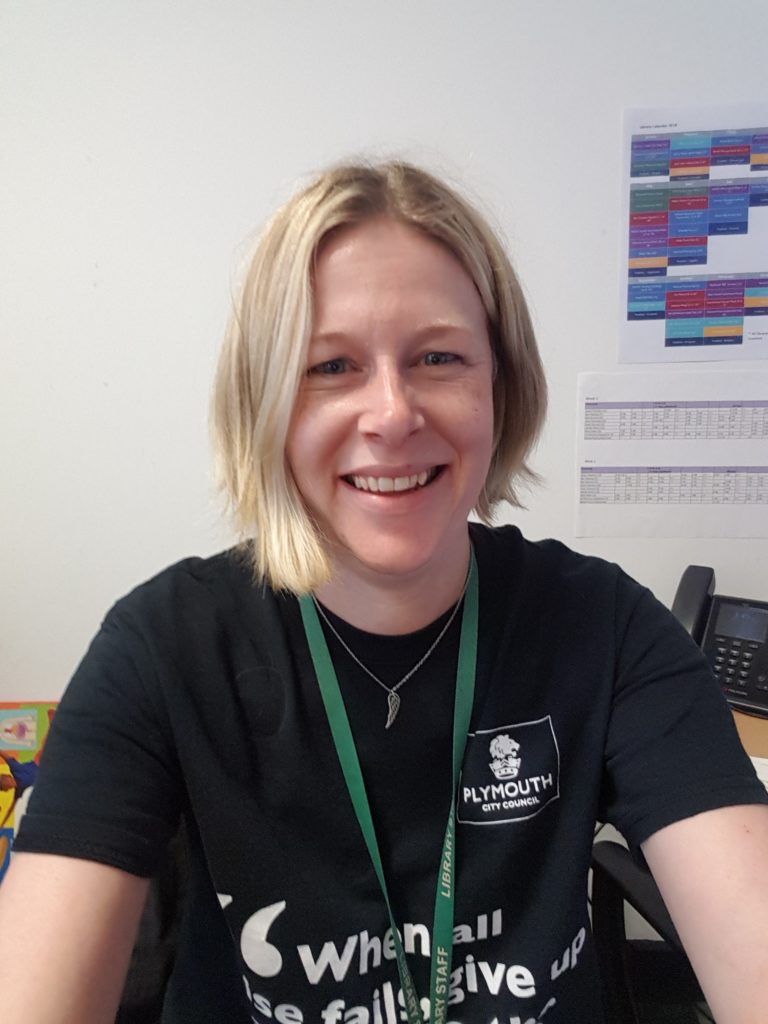Cake & Code at Plymouth Libraries

12th September 2019
Intro
National Coding Week is looking for beacons of good practice; examples of people or organisations who help others gain confidence and skills when learning “all things digital”. We interviewed Laura Norman at Plymouth Libraries to find out more about the amazing work that’s happening there and to find out a little more about her background and how she got into the world of coding.
Tell us a little about your role
I am a Development Officer for Plymouth Libraries and my role is to develop new ideas and concepts that will encourage and engage people to use the city libraries. We currently run several regular coding sessions for children at various libraries across the city to help promote digital literacy and encourage creativity.
Many parents who attended the Family Microbit sessions that I ran last summer asked if we would be doing any coding sessions just for adults so this got us thinking!

Development Officer
Customer Service and Service Centre – Plymouth City Council
How did you learn to code?
Now I didn’t learn how to code in school and so I had no experience at all when it comes to coding! With help from Code Club volunteers, we started our first Code Club. I helped run the sessions when it first started and so I took it upon myself to work through each of the Code Club projects and found it really enjoyable! I liked how methodical the process was of putting a list of instructions together to make something happen on the screen. It works through coloured blocks that fit together like a puzzle so it’s pretty easy to follow.
I also took it a step further, and did a few modules of coding online via Codecademy which is aimed at adults and a great step on from the children’s coding resources and a bit more challenging! I am still not an expert coder but now I understand a bit more about the various coding languages and how they’re used.
I then followed “Hello World” our own weekly after school coding clubs and Microbits – following trends from other libraries nationally we started loaning these fantastic little devices so people can learn about programming at home without having to spend lots of money on bits of kit.
So through research and getting the sessions set up, I learnt a lot about the different coding resources available online and the physical kits too like Lego We Do, Sphero, Ozobots which also work via coding.
What is Cake and Code?
After a bit of research online, I found that Leeds Libraries had run coding sessions for older people so I got in touch with them to find out how they ran their sessions. They were using a lot of the online resources we were using for the children’s sessions.
I ran my first beginners coding session for adults at Plymstock Library last September. I added the session to Eventbrite and advertised it through our monthly library newsletter which reaches thousands of people and so all the spaces were booked up within a week!
During the session I did a quick introduction and explained what “coding” is. Most attendees had no experience of coding so we then worked as a group through a coding activity on Code.org where you use a simplified way of coding using blocks of instructions that fit together like a puzzle.
Next I introduced the Microbit, which you can code to make a variety of things! We worked through a simple project that only required about 4 bits of code (I print off instruction sheets for each work station) but when uploaded to the Microbit, it actually turned it into a temperature gauge which is pretty cool. (Excuse the pun!)
How did the sessions and cake go down?
The feedback I received from those that attended both sessions was really positive. Some people were parents or grandparents and wanted to be up to date with what the children were learning at school, others just wanted to learn something new.
Attendees were keen to learn more about coding with many asking “when is the next session?” So far I have run Cake and Code at a few different libraries across the city and 2 sessions planned for Plympton and Plymstock Library for National Coding Week where I will be running through some more Microbit and Scratch activities.
What are your tips for other libraries?
At my first session, I wondered if it would be too immature for them using the resources aimed at children in an adult beginner’s session but from the feedback I received, this definitely works well!
I always make sure I have enough bookable spaces to enable people to pair up – I find that adults who attend the sessions are always a bit cautious as they have never encountered coding before but working as a team helps build confidence.
Always run through the coding exercise yourself first to reinforce your own confidence in delivering the session!
Resources I use for Cake and Code:
Microbit – https://makecode.microbit.org/lessons
Scratch – https://scratch.mit.edu/educators
Code.org – https://code.org/hourofcode/overview